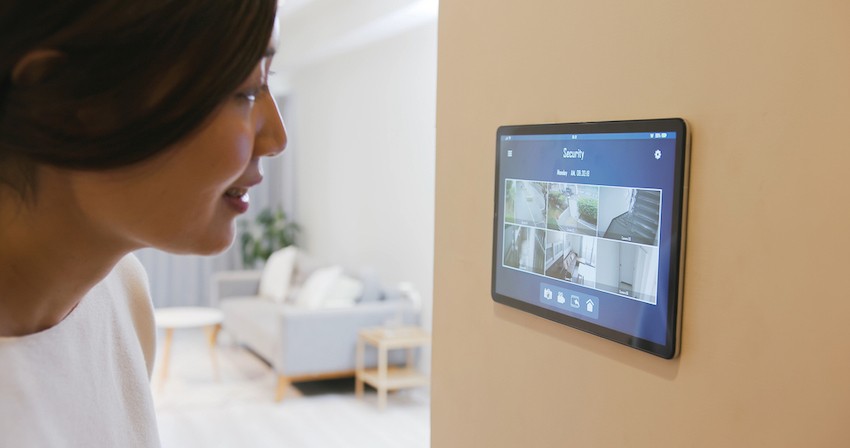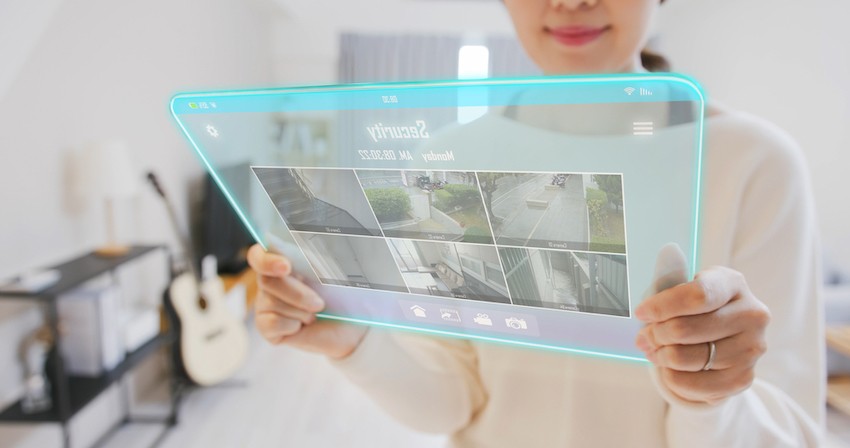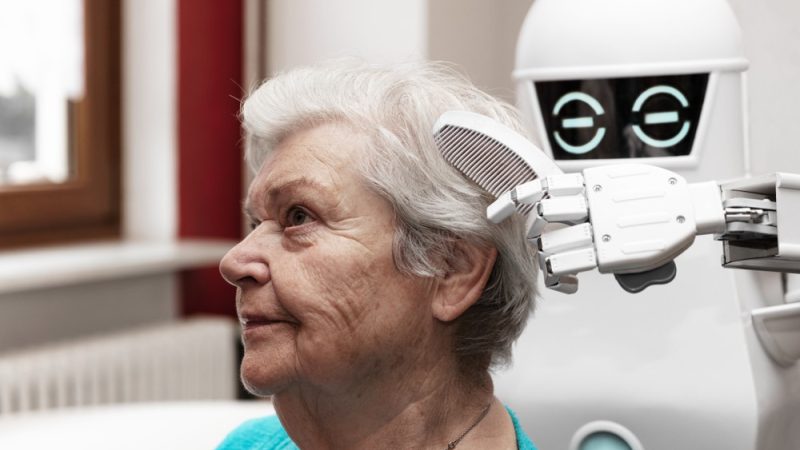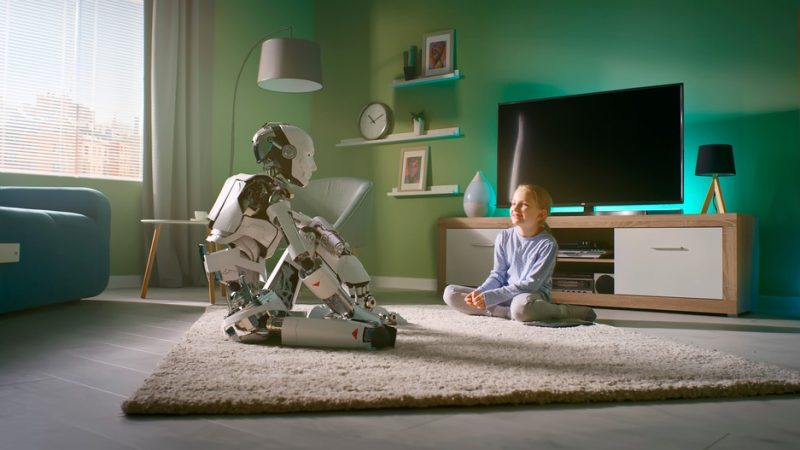
AI in Home Security: Revolution or Big Risk?
Artificial intelligence (AI) is rapidly transforming the home security industry, offering a range of benefits for homeowners. AI-powered systems use advanced algorithms and machine learning to detect and prevent potential threats to your home, including burglaries, fires, and other security breaches. These systems can incorporate a variety of devices, such as cameras, sensors, and smart locks, to provide a comprehensive and customizable security solution.
One of the key roles of AI in home security is the ability to detect and alert homeowners of potential threats in real-time. This allows for a faster response time, potentially preventing a break-in or other security breach.
Another important role of the AI technology in home security is the ability to learn and adapt to the homeowner’s routine. For example, the system can learn when the homeowner typically leaves and arrives home and adjust its settings accordingly. This can help reduce false alarms and improve the overall effectiveness of the system.
AI can also provide greater automation and convenience for homeowners. Smart locks, for example, can be controlled remotely using a smartphone or other device, and can be programmed to automatically lock and unlock based on the homeowner’s routine. This can provide an additional layer of security, as well as convenience and peace of mind.
What are the AI Features?
AI offers a range of benefits for home security. Here are the main:
- Greater Automation: AI-powered systems can learn and adapt to the homeowner’s routine. For example, the system can learn when the homeowner typically leaves and arrives home and adjust its settings accordingly. This can help reduce false alarms and improve the overall effectiveness of the system.
- Better Surveillance: With smart cameras and sensors, the system can detect motion, sound, and other anomalies and send notifications to the homeowner’s phone or other devices. This allows for a faster response time, potentially preventing a break-in or other security breach.
- Quicker Response Time: AI-powered systems can detect and alert homeowners of potential threats in real-time. This can help prevent a security breach before it even occurs.
What are the Disadvantages of AI in Home Security?
Despite its many advantages, AI-powered home security systems do have some potential drawbacks.
- Possible Mistakes: One concern is the possibility of false positives, where the system detects a potential threat that is not actually present. This can lead to unnecessary alerts and potential disruptions in the homeowner’s daily routine.
- Network Outages: AI systems require an internet connection to function, so if there’s an outage or disruption in the network, the system may not work properly.
- Privacy: Some people may have concerns about the use of cameras and other sensors in their homes. AI-powered systems may collect data on the homeowner’s daily routine and other personal information.
Home Security Devices

AI-powered tools are rapidly becoming an important aspect of home security systems. Find the most popular below:
Smart Cameras
Video monitoring is one of the most common ways to protect your home. Smart home security cameras are one of the most common AI-powered tools. They use advanced algorithms to detect and analyze motion and other anomalies in real-time. This allows homeowners to receive notifications on their phones or other devices when there’s activity in their homes, and to quickly assess whether there’s a potential security threat. Smart cameras can also be integrated with other smart home security devices to create a more comprehensive security system.
Facial Recognition
Facial recognition is an AI-powered technology. It works by analyzing and comparing facial features, such as the distance between the eyes and the shape of the jawline, to a database of stored images. This allows the system to identify and verify the identity of a person in real-time. Facial recognition software is becoming an increasingly popular choice for home security, as it provides an additional layer of security by allowing only authorized individuals to access the home.
Motion Sensors
Motion sensors are another popular AI tool for home security. These are motion detection sensors that notice every movement and other anomalies in your living spaces, and can be programmed to alert you if there’s any unusual activity. Some motion sensors are also able to differentiate between human movement and the movement of pets, reducing the likelihood of false alarms.
Smart Locks
Smart locks are also becoming an important part of AI-powered home security systems. These locks can be controlled remotely using a smartphone or other device, and can be programmed to automatically lock and unlock based on the homeowner’s routine. This can provide an additional layer of security, as well as convenience and peace of mind.
The Future of AI Technology in Home Security

The future of artificial intelligence in home security is promising, as technology continues to evolve at a rapid pace. We can expect even more advanced and effective AI-based security solutions to emerge in the coming years.
For example, AI-powered systems may be able to detect and identify potential threats based on patterns in data, such as recognizing an unusual spike in activity or identifying behavior that is out of the ordinary. Additionally, AI may be integrated with other smart home technologies, such as virtual assistants and smart speakers, to provide a more comprehensive and seamless security experience.
In the future, AI-powered systems may also be able to learn and adapt to the homeowner’s routine even more effectively, reducing the likelihood of false positives and further improving the overall effectiveness of the system. As the technology behind AI and home security continues to advance, we can expect to see even more innovative and sophisticated solutions to help protect our homes and keep us safe.
Conclusion
The role of AI in home security is rapidly expanding and is expected to become even more important in the coming years. As technology continues to evolve, we can expect to see even more innovative and sophisticated security devices that will help keep our homes and families safe.




















